Vanda Felbab-Brown discusses the implications of the U.S. arrest and release of Mexico’s former Minister of Defense Gen. Salvador Cienfuegos, who allegedly directed Mexican law enforcement actions away from the H-2 cartel and against its drug rivals. This piece was originally published by La Reforma’s Mexico Today.
In an extraordinary break with decades of U.S. law enforcement practices, the United States last week agreed to drop drug trafficking charges against Mexico’s former Minister of Defense Gen. Salvador Cienfuegos and release him from U.S. custody. In doing so, the Trump administration made a political decision to subordinate justice and legal proceedings to the foreign policy objective of preserving a less fraught relationship with United States’ vital partner and neighbor, Mexico. Outraged by the surprising arrest of Cienfuegos in Los Angeles on October 16, the Mexican government of President Andrés Manuel López Obrador has hailed the cancellation of the charges as a major diplomatic victory. But the seeming victory casts a long and uneasy shadow over the upcoming relationship between the López Obrador administration and the administration of President-Elect Joseph Biden. If Cienfuegos is meaningfully prosecuted in Mexico and sentenced, a decade and half of efforts to strengthen Mexico’s justice system may yet be vindicated. If the promised, but not certain investigation by the Mexican government or prosecution falters, the episode may well turn out to be a devastating indictment of the persisting high-level corruption, rule-of-law weakness, and impunity in Mexico.
When U.S. law enforcement agents nabbed Gen. Cienfuegos as he landed at the Los Angeles airport, shockwaves followed. The immediate shock was of the continually immense reach of Mexico’s vicious drug trafficking groups into the highest levels of the Mexican government. Cienfuegos was charged with drug-trafficking and money-laundering counts and accused of collaborating closely with the brutal H-2 cartel (a descendant of the Beltrán Leyva Cartel). Although serving as Mexico’s highest military official and, given the role of the Mexican military policing, also a top law enforcement official, Cienfuegos allegedly directed Mexican law enforcement actions away from the H-2 cartel and against its drug rivals. As per the U.S. indictment, he promoted and enabled drug trafficking of the H-2 cartel, not put off even by its highly murderous ways.
For decades, drug-trafficking-related corruption in Mexico has infected top law enforcement and government officials, including many generals. Hopes that Mexico may find the will and capacity to end this extent of corruption have been fading over the past year, as the United States indicted and arrested on drug trafficking charges other apparent leaders of Mexico’s anti-cartel efforts, such as former Secretary of Public Security Genaro García Luna and his close government associates. Many state-level officials in Mexico have been found to be on the narcos’ payroll in recent years also.
But the initial shock of astounding corruption was soon transformed into a different shock — to the U.S.-Mexican bilateral relationship. A nationalist uninterested in confronting Mexican drug cartels through law enforcement (unless under U.S. pressure such as after visible cartel murders of U.S. citizens in Mexico), López Obrador rapidly demurred at the arrest. Instead of focusing on anti-corruption and the rule of law, López Obrador stoked nationalist outrage. Accusing the United States of violating Mexico’s sovereignty, he demanded to see evidence against Cienfuegos and his release. Though bending backward to accommodate Trump’s brutal anti-immigration policies and complaining little about Trump’s highly-inappropriate threat of U.S. tariffs on Mexican goods, the Mexican government all of a sudden found its spine in the relationship with the Trump administration. It threatened a rupture in military-to-military relations between the United States and Mexico (collaboration that only started taking off in the 1990s, far later than with any other Latin American country) and denial of access to Mexico for U.S. law enforcement agents.
Beyond nationalist credentials and a record of disinterest in going after the cartels, López Obrador has had other reasons to allow the United States try Cienfuegos. Although posturing as rejecting the militarization of Mexico’s policies under his predecessors, the Mexican president has developed very close ties with the Mexican military, relying on them for everything from fielding troops to staffing the new National Guard to building luxury apartments (through juicy contracts for the military). Specifically, López Obrador embraced the Army branch (SEDENA) of the Mexican military, minimizing the role and influence of the Navy branch, SEMAR. For years, the United States has favored SEMAR as the preferred law enforcement partner against Mexican drug trafficking groups, judging SEMAR to be more competent and less corrupt than SEDENA.
SEDENA must be pleased that López Obrador coerced the Cienfuegos release, out of loyalty to its former leader but also because the military branch (long closed to outside scrutiny and rejecting transparency) has limited interest in having further revelations of drug-and –crime related corruption exposed. Just as García Luna did not collaborate with Mexican drug cartels alone, it is not unreasonable to suspect that Cienfuegos involved some of his associates in the military.
But Mr. García Luna must wonder why the López Obrador administration did not orchestrate his release on the same grounds: of the United States violating Mexico’s sovereignty and inadequately collaborating with Mexican law enforcement counterparts, and wanting to show that Mexico’s justice system is now robust enough to handle the investigation and prosecution. Because he was a member the Felipe Calderón administration that López Obrador deeply dislikes and vilifies?
López Obrador has thus had many political reasons to press for Cienfuegos’s release. But why did the Trump administration (normally enamored of tough posturing, bombastic statements, and outsized threats) yield in the manner it did, and in giving up a high-level former government official indicted for such serious organized crime activities, break with decades of U.S. international law enforcement practices?
We will not know the full record for some time, until credible detailed leaks about the considerations of the Trump administration emerge; or perhaps for decades, until the records of the Trump administration (however meager and partial) are declassified.
Many López Obrador supporters are promoting on social media the idea that the U.S. law enforcement case was weak and the United States handed Cienfuegos over because its evidence was inadequate, seeking to avoid the embarrassment of a U.S. trial failing.
However, that is extremely unlikely. Gen. Cienfuegos has not been tried and convicted and thus must be presumed innocent. But the claim of insufficient U.S. evidence confuses the record of Mexico’s weak justice system with that of the United States. It is in Mexico, not in the United States where impunity for serious crimes, including homicides, remains over 90 percent and where even trials of major criminals and top government officials collapse. Not since early prosecutions of organized crime figures in the U.S. in the 1930s through 1950s periods, have such major prosecutions collapsed in the United States. U.S. prosecutors would not have brought the case to indictment and arrest without the evidence being water-tight. Whether it has been trials of Colombian drug lords and paramilitary dons such as Don Berna, or Mexican traffickers such as Vicente Zambada Niebla and Joaquín Guzmán Loera El Chapo, or U.S. Cosa Nostra capos, global arms smugglers such as Viktor Boot, the U.S. prosecution has won. The U.S. justice systems make plea bargains, but that’s very different than U.S. prosecution failing. In fact, the plea bargains work because the U.S. prosecution cases are strong.
What has been revealed about the basis of the U.S. evidence and indictment against Cienfuegos is years of diligent and painstaking work, extensive wiretaps and other methods, which have been shielded from the Mexican government and law enforcement agencies for fear (absolutely justifiable and reasonable) that sharing the intelligence with Mexico posed high risks of it rapidly leaking out. One can only imagine the disappointment of U.S. prosecutors and law enforcement officials, working on the case and perhaps risking their safety. Also the anger and frustration of honest Mexican law enforcement officials who face immense risks of torture and death to themselves and their families when they seek to combat crime and corruption in Mexico and with determination collaborate with the United States.
The stakes of the political deal that the Mexican government struck with the Trump administration are high: Preserving the presence of U.S. law enforcement officials in Mexico is important, as is maintaining military-to-military relations. One individual, particularly one that is no longer in government and thus has less ability to direct and enable high-level government complicity, may not be worth sacrificing the broader government-to-government and institution-to-institution relations.
Mexico might have also threatened other dimensions of its collaboration with the Trump administration -namely, kowtowing to Trump on migration issues. To appease Trump, the López Obrador administration has suppressing migration to the United States at both Mexico’s northern and southern borders, tolerated swift deportation of Mexican nationals, and put up with holding U.S. asylum seekers from other countries in Mexico while they await their U.S. hearings. Suppressing migration and renegotiating NAFTA have been the dominant prisms through which the Trump administration has viewed its relationship with Mexico.
Recognizing the stakes, the Trump administration did not have to fold the way it did. It could have resorted to its old thunder of threating tariffs on Mexico or designating Mexican drug trafficking groups as foreign terrorist organizations — two policy moves I oppose but which Trump has repeatedly activated.
More usefully, the Trump administration did not have to be satisfied with Mexico’s mere promise to review the evidence that the United States has handed over and eventually investigate (at least thankfully through the Attorney General’s office, not a military tribunal). It could have waited until after the Mexican Attorney General actually indicted Cienfuegos and then handed him over. That would have addressed issues of Mexico’s sovereignty, U.S.-Mexican collaboration, and still allowed the Mexican justice system to demonstrate its presumed new heft.
Beyond the loss of U.S. ability to try Cienfuegos, there are other significant costs associated with the U.S. dropping the charges. Holding Cienfuegos in U.S. custody would have allowed U.S. prosecutors and law enforcement agents to interrogate him and gather information on other members of the criminal-political-institutional networks in Mexico.
There are also risks that in handing over the evidence package against Cienfuegos, both methods and sources could come under threat. The United States obviously scrubbed the packet and hopefully removed all sensitive information about key informants, sources, and methods; but even so, the chances that vital U.S. law enforcement systems in Mexico will become compromised have grown substantially, all the more so that Gen. Cienfuegos will remain at large.
But the U.S. decision also fits into wider patterns of the Trump administration and its surprising relationship with López Obrador. Donald Trump and Attorney General William Barr have long seen the presidency as the highest U.S. law enforcement authority, attributing to the office of the U.S. president expansive executive power. And Trump, who likes to posture as tough on crime, has systematically shown willingness to violate U.S. laws and undermine U.S. institutions and sacred and fundamental principles — from not paying taxes, to violating conflict-of-interest rules, to pardoning convicted criminals of views friendly to him, to refusing to accept his electoral defeat.
Trump and López Obrador have also become unlikely pals. Although Trump has – egregiously — characterized Mexican people as criminals and rapists, López Obrador has bizarrely praised Trump for treating Mexico with respect. And López Obrador has refused to congratulate Joseph Biden on his electoral victory.
But López Obrador has burned through not just a lot of personal diplomatic capital, but also deep bilateral institutional collaboration in this fight.
President-Elect Biden is a statesman who will not put sentiments about personal slights ahead of U.S. national interests. His administration will be committed to strengthening, deepening, and healing U.S.-Mexican relations — including concerns that only sporadically, if at all, interested Trump: violence in Mexico, confronting Mexican drug trafficking groups, fighting corruption, promoting the rule of law as well as democracy and human rights and environmental protection. The Biden administration will not shove these issues under the rug in exchange for the Mexican government suppressing immigration.
If the Mexican government diligently investigates and successfully prosecute Gen. Cienfuegos and related evidence does not leak out from Mexican officials to criminals and their corrupt government protectors, the relationship between the Biden administration and the López Obrador government can commence on a strong footing. But if the Mexican investigation is not serious, no indictment is made, or the prosecution collapses at trial, the U.S.-Mexican relationship will be strained.
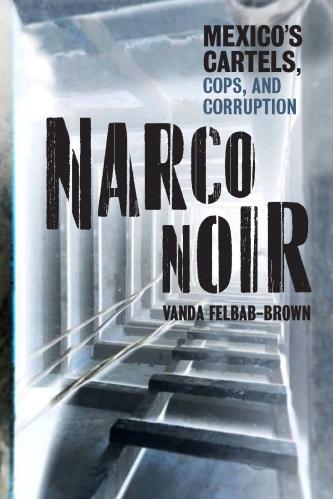


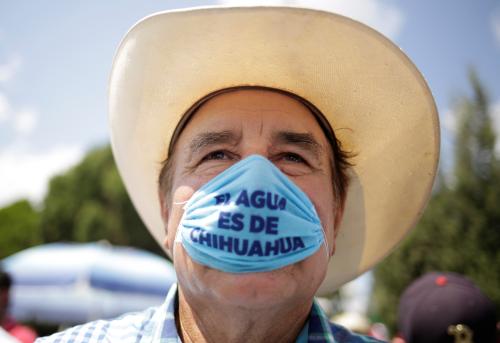
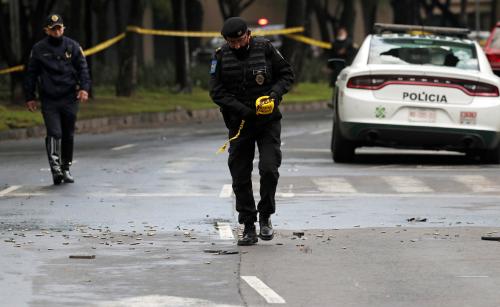

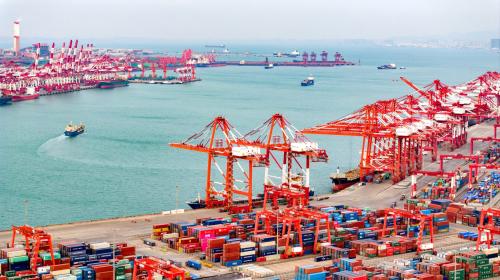
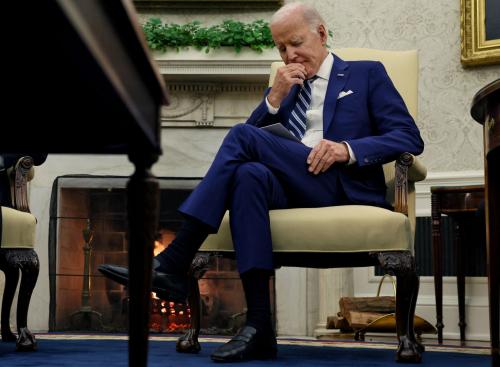
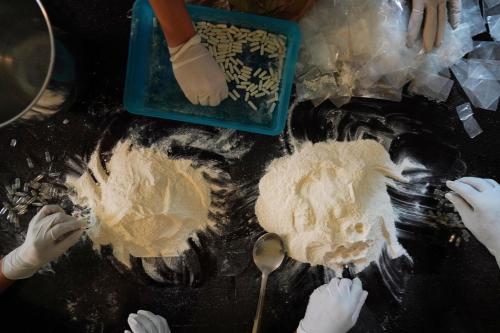
Commentary
Cienfuegos and the US-Mexico firestorm
November 23, 2020